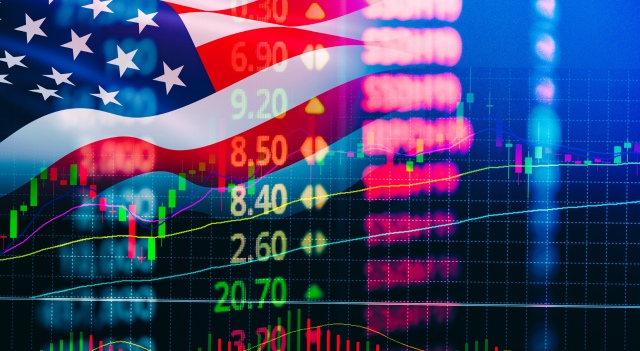
U.S. index futures are up in Monday’s pre-market trading, with Wall Street rebounding from the worst week of the year for the Dow Jones index and facing challenges from Iran’s recent missile and drone attack on Israel.
At 06:33 AM, Dow Jones futures (DOWI:DJI) were up 99 points, or 0.26%. S&P 500 futures rose 0.43%, and Nasdaq-100 futures gained 0.53%. The yield on 10-year Treasury bonds was at 4.569%.
In the commodities market, West Texas Intermediate crude oil for May fell 0.90%, to $84.89 per barrel. Brent crude oil for June fell 0.78%, near $89.74 per barrel. Iron ore traded on the Dalian exchange rose 2.18%, to $116.80 per metric ton.
The U.S. economic agenda for Monday includes retail sales, industrial manufacturing, business inventories, and federal income tax.
European markets are mixed, while the industrial sector experiences a substantial increase, the oil and gas sector faces a decline, influenced by tensions in the Middle East. In the context of geopolitical uncertainties, shares of Temenos (CHIX:TEMNZ) stood out, jumping after refuting accusations of accounting irregularities. Simultaneously, CVC (LSE:CVCG) is preparing its IPO on Euronext Amsterdam, aiming to raise 250 million euros, which underlines a long-term growth strategy. Industrial production in the eurozone is awaited on the economic front.
Most Asian markets recorded a decline on Monday, reacting both to the rise in geopolitical tensions and to the massive drone and missile attack launched by Iran against Israel, as well as to the anticipation of important economic indicators. The week is marked by the waiting for China’s GDP data and trade and inflation statistics from Japan. Meanwhile, in India, wholesale inflation exceeded expectations, driven mainly by rising food and energy costs. The complicated situation of Chinese real estate firm China Vanke, facing liquidity issues, also added uncertainties to the market. Japan’s major machinery orders in February exceeded forecasts, growing 7.7% monthly against an expected 0.8%. Annually, they fell 1.8%, less than the 6% forecast. Japan’s Nikkei 225 fell 0.74%. South Korea’s Kospi lost 0.42%, Kosdaq fell 0.94%, Australia’s S&P/ASX 200 went down 0.46% and Hong Kong’s Hang Seng fell 0.55%. China’s CSI 300 rose more than 2%, closing at 3,549.08.
Markets are tense with recent threats of military escalation in the Middle East, which could raise energy costs during a critical period of fighting inflation. Nevertheless, investors felt cautious relief after statements from the Iranian mission at the UN, indicating that the conflict might be over. International appeals for moderation aim to prevent a widespread regional war.
U.S. stock markets ended the week with a significant drop, influenced by geopolitical tensions, concerns about inflation, and pessimistic economic projections from major banks. On Friday, the Dow Jones index fell 1.24%, while the S&P 500 and Nasdaq retreated 1.46% and 1.62%, respectively. Shares of Citigroup (NYSE:C) and JPMorgan Chase (NYSE:JPM) recorded notable falls after the disclosure of their quarterly numbers, reflecting challenges in the banking sector. Moreover, inflation continues to concern investors, exacerbating the climate of uncertainty in the market.
On the quarterly results front, scheduled to present reports before trading begins are Goldman Sachs (NYSE:GS), Charles Schwab (NYSE:SCHW), M&T Bank (NYSE:MTB), Guaranty Bancshares (NASDAQ:GNTY), Caliber Cos Inc (NASDAQ:CWD), among others.
After the close, numbers from Skillsoft (NYSE:SKIL), FB Financial Corporation (NYSE:FBK), Inspired Plc (NASDAQ:INSE), Vuzix (NASDAQ:VUZI), Dragonfly Energy Holdings (NASDAQ:DFLI), Crossfirst Bankshares Inc (NASDAQ:CFB), and more will be awaited.

It looks like you are not logged in. Click the button below to log in and keep track of your recent history.